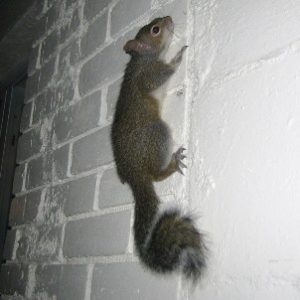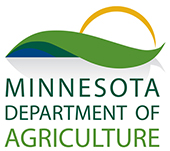 Animals typically do not migrate south for winter, unlike birds. Even though they can be nuisances during warmer months, wild animals also have the potential to cause serious damage to buildings and property during colder temperatures. To determine if animals have entered your home in search of warmth, it’s essential that you know what signs to look out for so you can prevent an invasion from taking place.
Animals typically do not migrate south for winter, unlike birds. Even though they can be nuisances during warmer months, wild animals also have the potential to cause serious damage to buildings and property during colder temperatures. To determine if animals have entered your home in search of warmth, it’s essential that you know what signs to look out for so you can prevent an invasion from taking place.
Squirrels: Squirrels are active all year. They store food such as grains, nuts, seeds and berries in order to stay stationary until they run out of food – at which point they move elsewhere. Squirrels find warmth and dryness in attics appealing. Your structure could become severely damaged by squirrels due to damaged insulation, urine-stained woodwork and unwelcome insects attracted by squirrel nuts and seeds.
Skunks: Like many wildlife creatures, skunks don’t hibernate fully but instead enter “torpor” – a state of reduced body temperature and metabolic rate like “lethargic” sleep. While they usually stay under ground during cold weather, you may spot footprints under porches and decks. Although homeowners can usually survive without being able to smell skunks for most of the year, damage and odors become worse once thawing begins. To protect yourself from potential damages caused by these pests, cover any areas where skunks might hide or dig before freezing begins by covering any areas with chicken wire or netting before freezing temperatures enter these spaces.
Chipmunks: In wintertime, chipmunks become less active and leave their underground burrows. Chipmunks collect food like squirrels but do not store it in multiple places like squirrels do; rather, their underground tunnels provide food, shelter, and space to move about. These wild animals appear smarter and more efficient than their human counterparts.
Awareness Of Wild Animals In The Area
Winter brings out more vicious and larger animals that homeowners should be aware of. When food becomes scarce and temperatures drop, coyotes, raccoons and deer may approach homes seeking warmth and nourishment. For humane solutions when you spot larger tracks in the snow, contact Minnesota Wild Animal Management at (612) 386-1289 for assistance. We can help keep wildlife off your property this winter, preventing damage and loss. Contact us now! Our 24/7 services extend throughout the Twin Cities metro areas.



